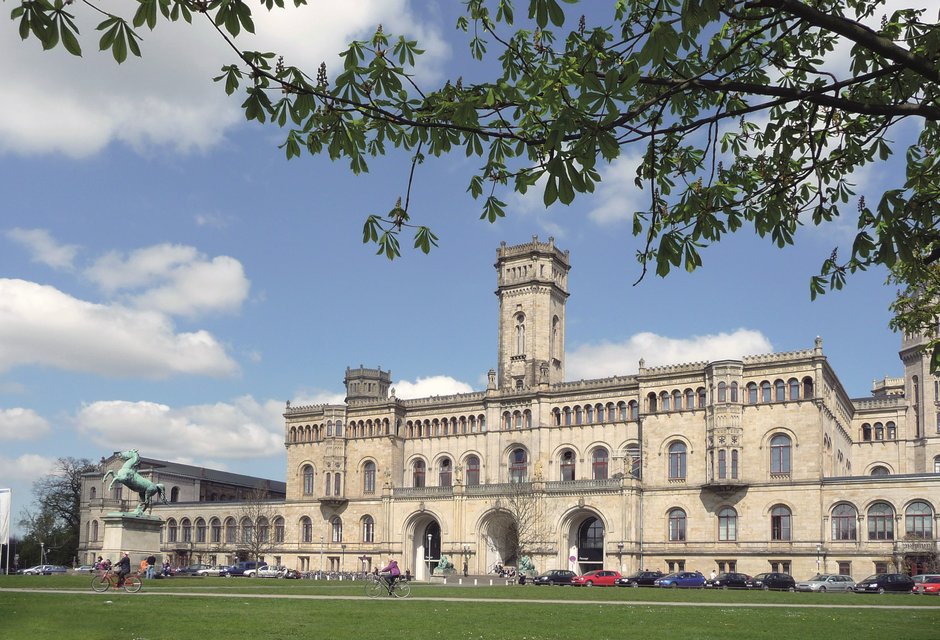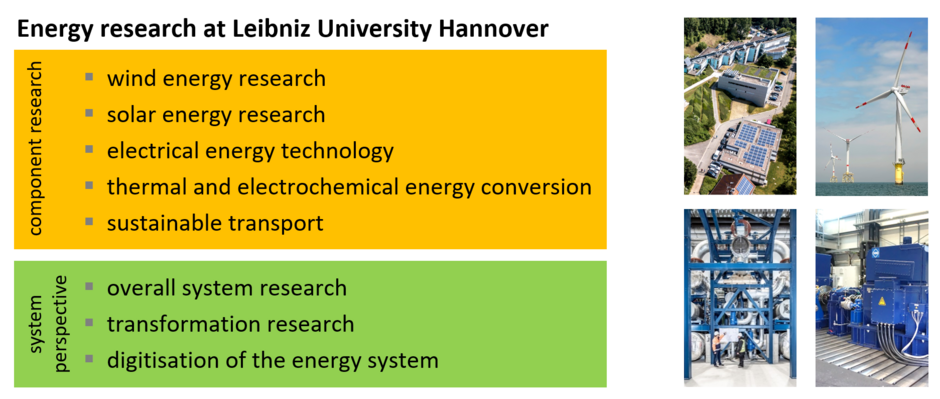Location Hannover
More than 300 scientists at Leibniz University Hannover (LUH) are united in the research focus "Transformation of the Energy System", with the Institute for Solar Energy Research (ISFH) integrated as an affiliated institute of LUH. The driving force behind the bundling of research activities is the interdisciplinary "Leibniz Research Center Energy 2050" (LiFE 2050). A board with an elected spokesperson coordinates the tasks of LiFE 2050 and an office has been set up to implement these tasks. It is also responsible for the external presentation of the research center and is the driving force behind the bundling of activities in the university's energy research focus, which was established in 2024.
Further informationen can be found on the LUH website on the research profile (https://www.uni-hannover.de/de/forschung/profil/schwerpunkte), on the LiFE 2050 website (https://www.energie.uni-hannover.de) and on the Institute for Solar Energy Research in Hamelin (ISFH) website (https://isfh.de/) an institute associated with the LUH.

Core topics
Energy research at LUH pursues the goal of an energy supply without fossil fuels, in line with the sustainable development goals of the United Nations, in particular SDG7 "Clean Affordable Energy". Research focuses on components for the conversion, storage, transportation and use of energy on the one hand, and on work on the systemic analysis of interrelationships and their interactions with the environment and society on the other. In component research and technology development, the focus is on wind and solar energy research in addition to electrical energy technology, thermal and electrochemical energy conversion and sustainable transport as well as the material use of renewable energies. In the context of the system perspective, a holistic view of the transformation process towards a sustainable energy system is considered, for example by modeling geoinformation, environmental planning and digital twins.
Contact
Prof. Dr.-Ing. habil. Torsten Schlurmann
Deputy Spokesperson efzn Location Hannover
Email: Write message
